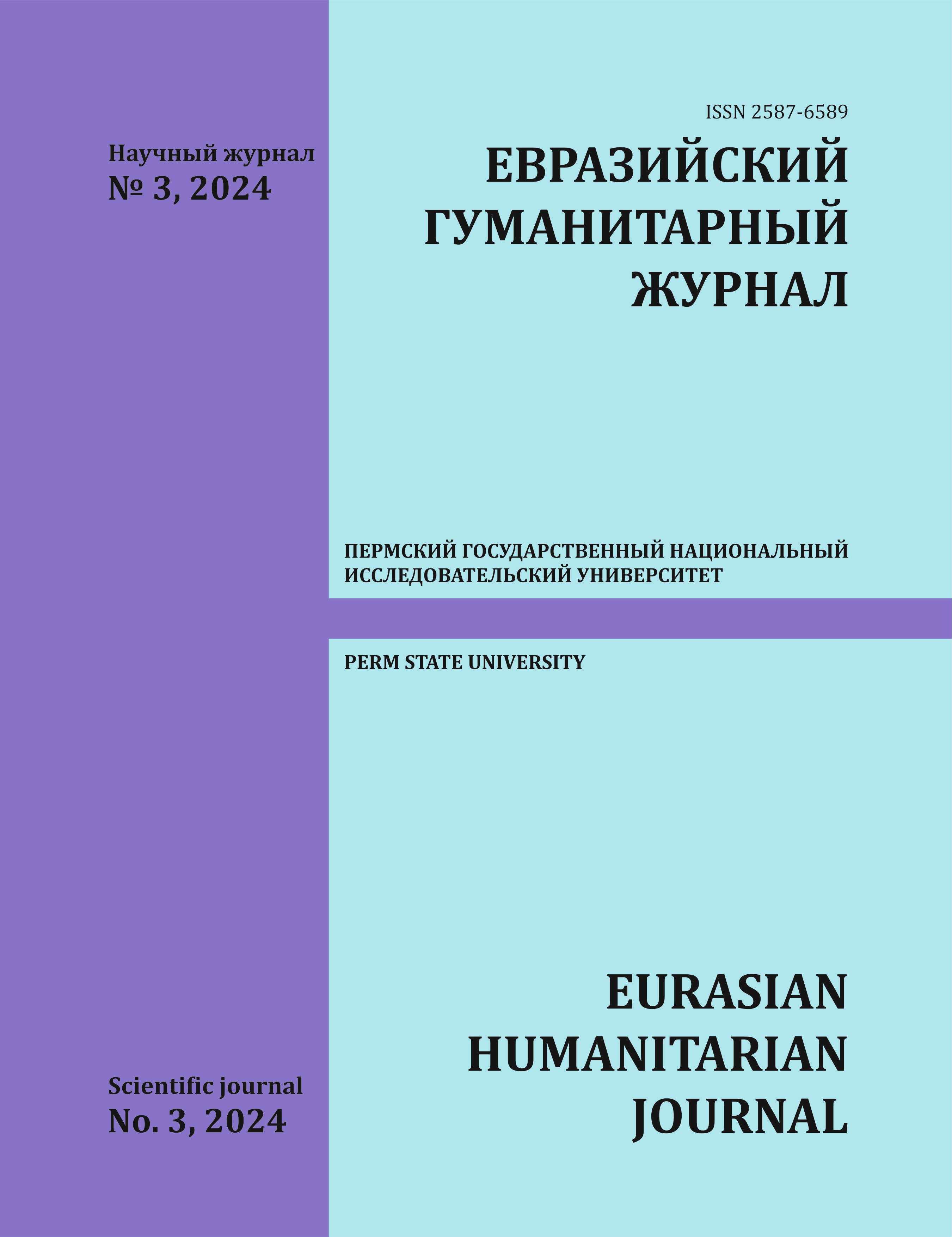ASPECTUAL-TAXIC PROPERTIES OF THE GERMAN DEVERBATIVE (USING THE EXAMPLE OF STATEMENTS WITH PREPOSITIONAL CONSTRUCTIONS)
Keywords:
deverbative, statal deverbative, procedural deverbative, actional deverbative, productive verbs, aspectuality, aspectual correlativity, aspectual limitation, taxisity, aspectual-tactical properties, taxis co-actualizerAbstract
This article is devoted to the consideration of the aspectual-tactical properties of German deverbatives, realized in statements with prepositions of temporal and non-temporal semantics. The issues of describing the linguistic nature, as well as the system-functional properties of German deverbative nouns as derivative names are considered in a number of works by domestic and foreign researchers. However, more careful attention is required to describe the aspectual-taxic properties of deverbatives as names of derivatives that inherit and, as a rule, preserve the aspectuality and taxicity of producing verbs. German deverbatives (statal, procedural, actional), as a rule, are characterized by the aspectual features of the verbs that produce them (infinitude, liminality, duration, non-duration, etc.), although their aspectuality (in comparison with the aspectuality of verbs) reveals some limitations. The aspectual limitations of deverbatives are due to their derivational nature and the categorical meanings of nouns. Along with aspectuality, deverbatives also inherit the verbal property of taxis, i.e. the ability to act as taxis actualizers (co-actualizers) in prepositional constructions. Temporal prepositions and adjectives with the semantics of duration in the attributive function serve as diagnostic indicators of the realized aspectual-tactical properties of deverbatives. The study established that when used with temporal prepositions, statal, procedural and actional deverbatives of the German language participate in the actualization of the categorical meanings of the chronological taxis of simultaneity and multitemporality, and when combined with non-temporal prepositions, they perform the function of co-actualizers of the non-chronological (adverbial) taxis of simultaneity – causal, medial, concessive or adverbial taxis of the mode of action.Downloads
Published
2024-10-09
Issue
Section
ФУНКЦИОНАЛЬНАЯ ГРАММАТИКА

